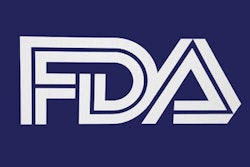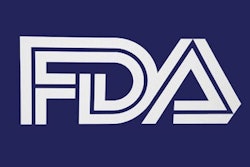
Artificial intelligence (AI) software shouldn't be used to rule out cases of intracranial large-vessel occlusion (LVO) from radiologist review, according to an advisory issued April 11 by the U.S. Food and Drug Administration.
The FDA noted that software applications designed for computer-aided triage and notification (CADt) have reached the market that are intended to aid in prioritization and triage of LVO cases based on imaging findings in the brain. LVO is an obstruction of one of the brain's large arteries and is a common cause of ischemic stroke.
"Health care providers may not be fully aware that LVO CADt devices are intended for prioritization and triage only," the FDA advisory noted. "These devices should not be relied on when making any diagnostic decisions."
Use of AI applications for LVO detection has grown following FDA approval of a new of algorithms. Another move spurring growth in usage was a decision in 2020 by the U.S. Centers for Medicare and Medicaid Service to pay for use of the software under a new technology add-on payment (NTAP) program for AI-based detection of LVO stroke on CT angiography exams.
However, the FDA has received reports that healthcare providers "may not be aware of the intended use of these devices." The FDA advised providers of the following:
- LVO CADt software is intended only to flag imaging exams with suspected findings and "should never be used as a replacement for information interpretation by an imaging physician."
- LVO CADt software can't rule out the presence of a large-vessel occlusion. False negatives are still possible even if a case is not flagged by the software.
- When such software works as intended, it can help improve workflow by prioritizing cases in which an LVO is suspected of being present.
- LVO CADt software does not remove imaging exams from the radiologist's worklist. Even exams that are not flagged for prioritization should still be interpreted by a radiologist.
- LVO CADt software is designed specifically for detecting large-vessel occlusion, not all intracranial vessels.
The FDA said it is working with developers of LVO CADt software to make sure that healthcare providers understand how the applications are designed and intended to be used. The agency is also monitoring real-world performance of AI and machine-learning tools, including CADt. Adverse events should be reported to the FDA's MedWatch program.



















